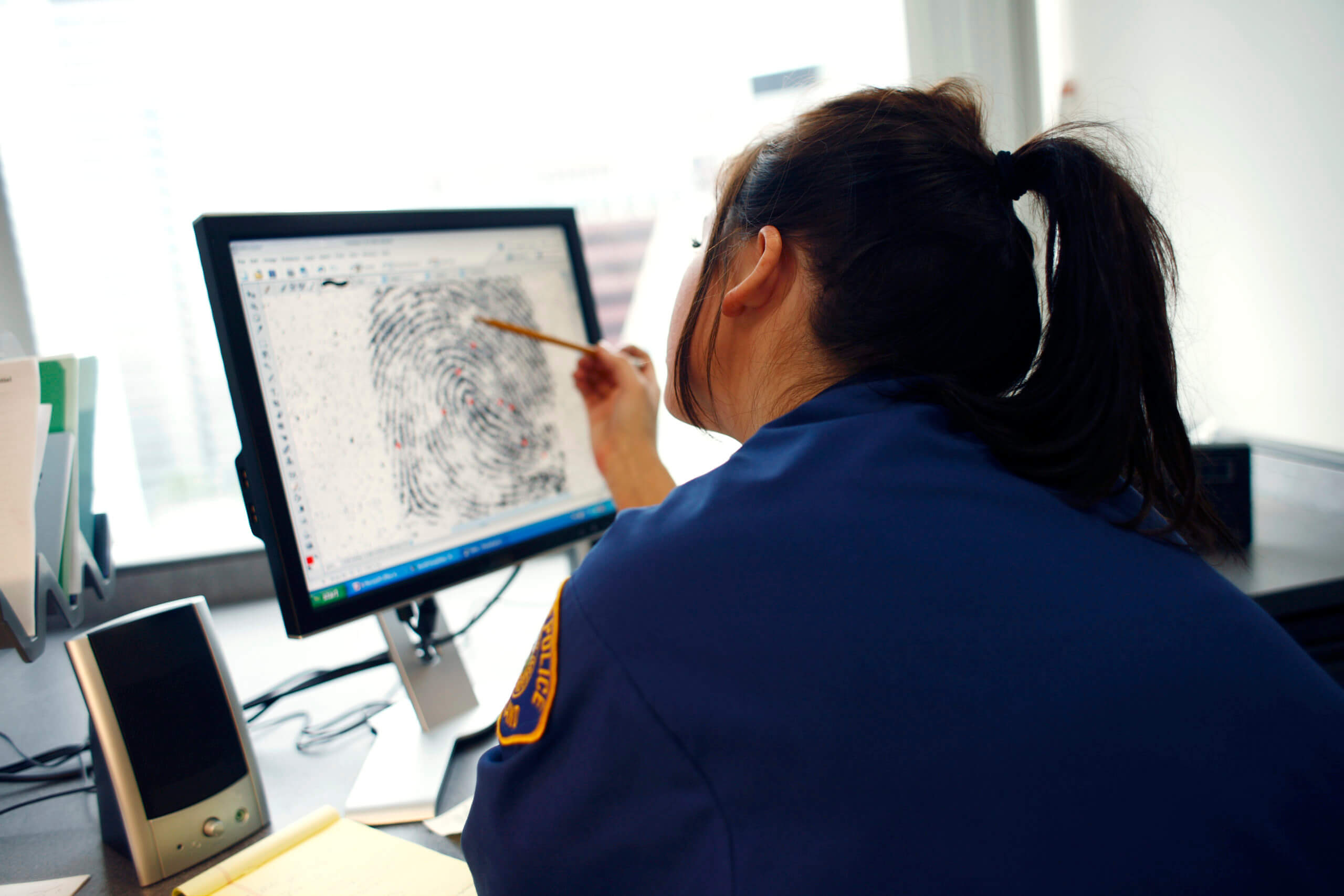Explore Criminology at ACAP
Do you find yourself binge-watching NCIS and Criminal Minds? Do you consider yourself somewhat of an armchair detective or internet sleuth? If you dream of solving mysteries, uncovering hidden truths and seeking justice, then becoming a detective could be the perfect career for you.
Detectives play a critical role in law enforcement, using their investigative skills to solve crimes and bring offenders to justice. Whether you’re interested in general detective work or asking, “How do I become a homicide detective?” or “How do I become a police detective?”, we’ve got the answers!
ACAP’s comprehensive guide will walk you through the steps on how to become a detective in Australia – keep reading to learn more, starting with what a detective is and what their role entails.

What is A DETECTIVE?
A detective is a law enforcement officer who specialises in criminal investigations. Detectives are tasked with more complex criminal investigations, and they often work on cases that involve homicides, fraud, drug-related crimes and missing persons. The detective’s role involves analysing evidence, interviewing suspects and witnesses and working closely with forensic teams to solve cases.
What DOES A DETECTIVE DO?
Detectives handle a wide variety of responsibilities depending on their area of expertise. Here are a few key tasks they perform:
- Investigating crime scenes
- Interviewing witnesses and suspects
- Collecting and analysing evidence
- Writing detailed reports
- Collaborating with legal teams to ensure convictions
- Testifying in court
- Conducting surveillance.

How to become a DETECTIVE in Australia
At this stage, you’re probably wondering, “How do I become a police detective?”. Due to the high demand for detective roles, candidates typically have extensive experience, supported by an accredited qualification.
The process can vary depending on your location and the specialisation you’re interested in, but the most common pathway on how to become a detective in Australia is:
- Become a Police Officer
The most common pathway is to first start your law enforcement career as a police officer. This involves completing relevant education and recruitment procedures for your state or territory’s police force. This typically includes passing fitness tests, medical checks, and psychological evaluations, followed by police force academy training. Visit our dedicated blog post for more details on how to become a police officer. - Gain Experience in Policing
After completing your academy training, you’ll need to gain some experience as a general-duty police officer and work your way up the ranks. The length of service required before you can apply for detective training varies between states and territories. For instance, in Victoria, it’s generally around 2-3 years, while in Queensland, the timeframe is typically 3-5 years. In South Australia, it might take even longer depending on the availability of positions. - Field Exposure
Some states may offer earlier opportunities to work within specialist squads or divisions. For example, the NSW Police Force has diverse specialist units, allowing officers to gain exposure to investigative work relatively early in their careers. During this time, you’ll develop core skills essential for a detective, such as crime scene management, communication, and problem-solving. - Detective Training
Once you have enough experience, you can apply for a detective position and undertake specialist detective training. These courses cover investigative techniques, case management, and court procedures. - Specialise in a Field
Many detectives choose to specialise in certain areas of criminal investigation. For example, you might ask yourself, “How do I become a homicide detective?”. Further training and experience in specific criminal investigations will help open the door to more complex and high-profile cases. Larger states like NSW and Victoria often provide more opportunities for specialisation, given their larger population and greater volume of criminal cases. In contrast, the Northern Territory may have fewer specialist roles but offers broader general investigation opportunities.

Frequently asked questions about HOW TO BECOME A DETECTIVE
WHAT IS THE DIFFERENCE BETWEEN A DETECTIVE AND A POLICE OFFICER?
While both detectives and police officers enforce the law, the key difference is in their duties. Police officers handle general law enforcement tasks like patrolling and responding to emergencies. Detectives, on the other hand, focus on investigating and solving crimes after they occur.
WHAT DEGREE DO YOU NEED TO BE A DETECTIVE?
Having a higher education qualification, such as a degree in criminology or criminal justice, is usually required to become a detective. ACAP offers courses like the Bachelor of Criminology and Justice or the Associate Degree of Criminal Justice, which provide a strong foundation in criminal behaviour, investigative techniques, and law enforcement practices.
If you’re eager to dive deeper into the criminal mind, ACAP’s Bachelor of Psychological Science and Criminology offers the best of both worlds – criminology and psychology!
HOW MUCH IS A DETECTIVE SALARY?
Detectives in Australia can expect to earn a competitive salary. According to Glassdoor, the estimated total pay for a Detective is $125,443 per year, with an average salary of $111,500 per year. Specialised detectives, such as homicide detectives, may earn higher wages, especially in major cities like Sydney and Melbourne.
IS IT HARD TO BECOME A DETECTIVE?
Becoming a detective is undoubtedly challenging, but it’s a rewarding career for those with a passion for investigation and justice. The process requires dedication, experience, and specialist training. However, with persistence and the right qualifications, it’s an achievable goal with great job security and longevity.
HOW LONG DOES IT TAKE TO BECOME A DETECTIVE?
The timeline can vary, but generally, it takes around 5-7 years to become a detective. This includes the time spent studying a higher education course such as a criminology degree, gaining experience as a police officer, and undertaking specialised detective training.

READY TO BECOME A DETECTIVE?
If you’re excited about the idea of pursuing a career in law enforcement and want to know more about how to become a detective, explore ACAP’s courses in criminology today!
For more information on career pathways, you can contact one of our friendly Course Advisors who can guide you on your way to becoming a detective.

